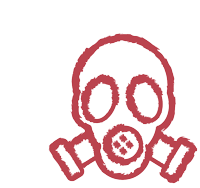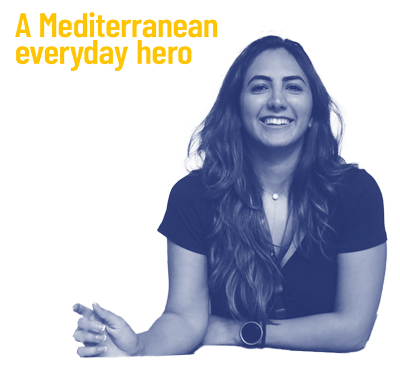
Environmental degradation
The rich biodiversity of the Mediterranean is at risk due to habitat loss, various forms of pollution, including plastic in the sea, and the overexploitation of resources. We must act decisively to preserve our natural heritage and safeguard the delicate balance of our ecosystems.
Guadaluna Chaer
The Mediterranean region is home to a multitude of unique habitats, species, and landscapes. However, environmental degradation is accelerating, impacting our socio-ecological systems through biodiversity loss, increased pollution, water scarcity, coastal degradation, and food insecurity. Our region, along with its biological and geographical diversity, is alarmingly affected by this intensifying environmental, energy, and climate crisis.
With high erosion rates, low levels of soil organic matter, and rising land abandonment rates reaching 30%, the Mediterranean requires innovative solutions to tackle environmental degradation, particularly in the agricultural sector.
Amidst these escalating challenges, creative minds are stepping forward. Guadaluna Chaer, the co-founder and CEO of LUXEED Robotics, is an agro-tech entrepreneur pioneering a revolution in weed removal techniques. Using lasers and artificial intelligence, her start-up aims to promote a more sustainable and efficient farming industry, combating environmental degradation in our region.

“I am part of a generation that is conscious and concerned about climate change and who wants to act to change it.”
Guadaluna’s goal has always been clear: to address climate change and environmental degradation through technology and engineering. “Land is becoming scarce. The population is growing, and water shortages are increasing… Technology and innovative techniques can help address these issues. For example, new technologies can save up to 50% of water usage in agriculture,” she shared.
As she explained, weeds are a global agricultural problem, particularly for crops. Her project proposes replacing the use of herbicides, which has been the more common method, with new and greener techniques that help regenerate the soil while removing weeds. According to Guadaluna, LUXEED Robotics not only aims to revolutionise weed control but also promises to conserve water, enhance soil health, and boost crop yields. This makes sustainable farming accessible to all, addressing the sector’s needs by increasing efficiency and improving crop quality.
Guadaluna always had a clear vision of becoming a mechanical engineer. Even as a child, she had a passion for “building things,” but it wasn’t until her university years that she considered combining this passion with entrepreneurship. Encouraged by a professor to develop cutting-edge ideas, she began to explore the agro-tech sector, partly inspired by her father, an agricultural trader. “Actually, LUXEED Robotics was born from a Hackathon programme at university,” she recalled. After consulting various experts and researching current agricultural challenges, Guadaluna and her team decided to focus on weed management and its improvement: “When we chose the technique (using lasers and AI), no one was using it then, and it just made sense to us both mechanically and environmentally.”
LUXEED ended up being the winning project of the student competition, sparking great interest among the audience and leading Guadaluna and her team into an accelerator programme to learn more about entrepreneurship. Consequently, what started as a university project turned into a tangible initiative with the potential to revolutionise farming techniques and address environmental degradation.
Bringing this idea to life has not been without challenges. As a young woman in the agro-tech sector, Guadaluna shared how it is not always easy to access funding or find other women working in the same field. “I found key women who supported me and enabled me to access funds and investment, but not all female entrepreneurs have had the same experience. It can also be very isolating working in a sector with so few women.” She believes it is crucial for more women to pursue professional careers in both the financial and engineering sectors, increasing investment in women-led businesses and ensuring a female presence within agro-technology. Women engineers are indeed essential for the transition towards greener and more efficient agriculture.
As LUXEED Robotics continues to develop, Guadaluna hopes that the farming industry in the Mediterranean will benefit from broader collaboration between the two shores. More cooperation in our region would lead to greater exchanges of best practices and easier access to funds, two essential elements for driving a sustainable revolution within the sector and addressing environmental degradation. In Guadaluna’s words: “More organic farms, together with tech analytics, AI, and other innovative technologies, will lead to an optimisation of resources in agriculture and, ultimately, to a more sustainable future for the Mediterranean”.
As we look to the future, it’s crucial for individuals, businesses, organisations, and governments to support sustainable initiatives like LUXEED Robotics. Together, we can protect the Mediterranean’s rich heritage and ensure a thriving environment for generations to come.